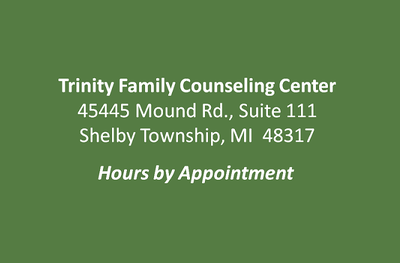Grief and Loss
|
“Life has changed without my permission.”
Those who are grieving the loss of someone they love are truly suffering through no fault of their own. The emotional, spiritual, psychological, and physical assault of loss is profoundly overwhelming and life-changing. Coping with and moving through your loss involves tolerating the anguishing emotional pain. It also requires understanding that your unique grief experience will be a very lonely place for a period of time. These insights, forced upon us in our darkest moments, can help us reconcile the fact that life has indeed, changed forever… without our permission. Our task becomes figuring out how to take in and process this experience–as part of what now defines us—and move forward in our own life. The guidance and support of a caring grief counselor can be invaluable as you navigate this difficult journey. Trinity Family Counseling Center offers individual, family, and group support for those suffering the anguish of loss. |
Counseling Insights and Articles About Grief and Loss:
|
The Realities of Caregiving a Loved One, by Tonya Ratliff
Grief Can Intensify During the Holidays, by Tonya Ratliff What Is Important To Say When A Loved One Is Dying, by Shelley Kruszewski Grief's Unfinished Business: Secondary Losses, by Tonya Ratliff The Tasks Of Grief Work, by Tonya Ratliff Joy Amidst Grief, by Tonya Ratliff Regret In Grief, by Tonya Ratliff Gratitude Transforms The Thanksgiving Table, by Deb Toering |
The Dynamics of Grief Within a Family, by Tonya Ratliff
Emotional Consequences of Job Loss, by Tonya Ratliff The Language of Loss, by Tonya Ratliff “Life Has Changed Without my Permission”, by Tonya Ratliff It’s Not What I Expected, by Deb Toering The Benefits of GRIEF SUPPORT Within a Group Experience, by Tonya Ratliff |





